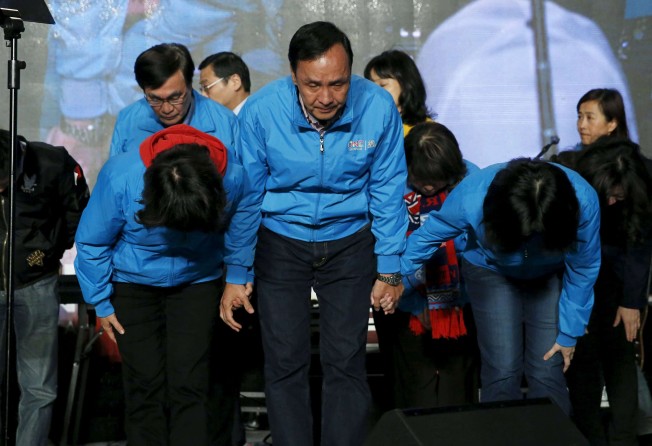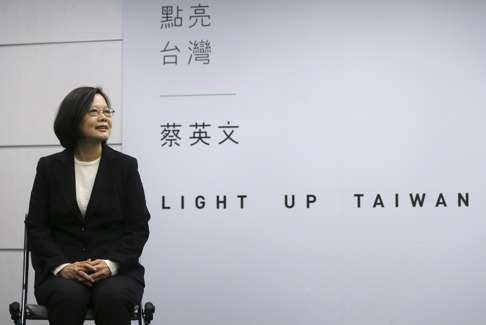
For a lesson on party revival, Taiwan’s KMT should look to its bitter rival – the DPP
Michal Thim says the downtrodden KMT can win back voters by taking a more modern and moderate stance – a formula that worked well for the DPP

What a difference eight years can make. A badly beaten party awaits someone to put it back on track. That description was as apt for the Democratic Progressive Party in 2008 as it is for the KMT in 2016.
For good reasons, many see the Kuomintang slipping away into oblivion. However, nothing in politics is a foregone conclusion. The KMT can recover if it gets a few things right. Restoration of party unity would be a good start. A more daunting task is to marginalise diehards’ excessive influence. The biggest challenge for the incoming party leader is the growing divorce of the KMT’s founding ideology with mainstream public opinion.

While public opinion polls may have some impact on the KMT delegates’ voting, at the end of the day, the election will be a result of internal dynamics. It is clear that Hung, the darling of KMT fundamentalists, will not challenge the party’s unification ideology, a necessary step to align with the political mainstream. As for Huang, it is too early to tell if she could lead a revival. One thing is evident, a simple return to the status quo is not a credible option. Cross-strait policy has long been a KMT strength, perceived as more realistic than the DPP’s efforts to frame relations with Beijing. However, the DPP now has found a way round this with a formula based on the Republic of China’s constitutional order. Beijing may not be overly excited about it, but it is good enough for voters. The DPP now occupies the higher ground of cross-strait policy credibility in the eyes of the electorate.

Perhaps the KMT election candidates would do well to look at how the DPP rose from the ashes of the 2008 electoral defeat. It had enough courage to select the relatively low-profile Tsai Ing-wen. Not everyone was happy, least of all some of the old guard who felt Tsai compromised too much on DPP core values. Eight years on, Tsai delivered a great victory. Moderation, not fundamentalism, is key to a KMT resurrection.
Whoever wins on Saturday should present a longer-term vision and be willing to defend the mandate. However, the KMT leadership may have different ideas.
Michal Thim is a Taiwan analyst at the Association for International Affairs in Prague and a member of the Centre for International Maritime Security